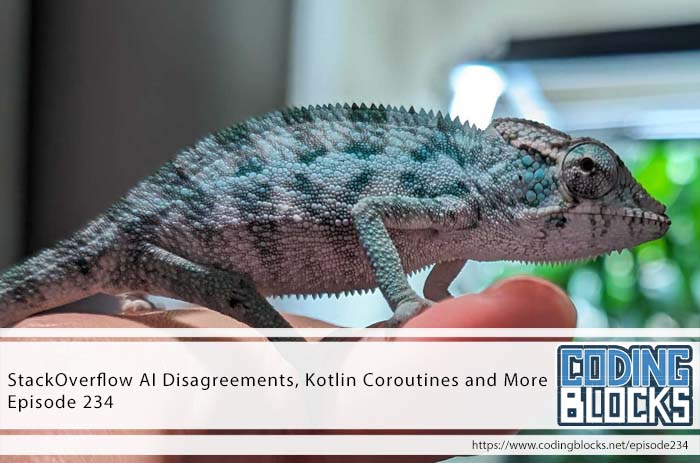
 Coding Blocks
Coding Blocks StackOverflow AI Disagreements, Kotlin Coroutines and More
May 13, 2024
The podcast covers AI disagreements on StackOverflow, tips for obfuscating data dumps, and the benefits of Kotlin Coroutines. They also discuss Tesla's Las Vegas Loop, overfilling gas tanks, and the efficiency of AI assistance in coding.
Chapters
Transcript
Episode notes
1 2 3 4 5 6 7 8 9 10 11
Introduction
00:00 • 2min
Navigating Conference Travel Costs
02:17 • 6min
Exploring the Impact of Chat GPT on Stack Overflow and AI Ethics
08:05 • 23min
Data Mining Limitations and Kotlin's Co routines Explained
30:52 • 2min
Exploring the Efficiency of Kotlin Coroutines in Java Applications
32:46 • 11min
Comparison of Kotlin Coroutines and Cloudflare's Worker Service
43:22 • 2min
Comparing Flink with Serverless Functions and Kafka
44:54 • 6min
Car Troubles and Financial Frustrations
50:30 • 21min
Exploring AI Assistance in Coding and Car Troubleshooting
01:11:09 • 20min
Strategies for Resolving a Trust Issue in Docker Setup
01:31:15 • 2min
Obtaining and Copying Keys: ASCII-Armored Version
01:32:57 • 9min

